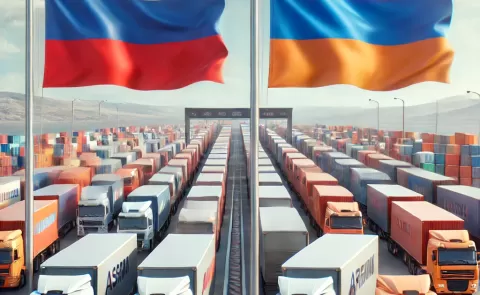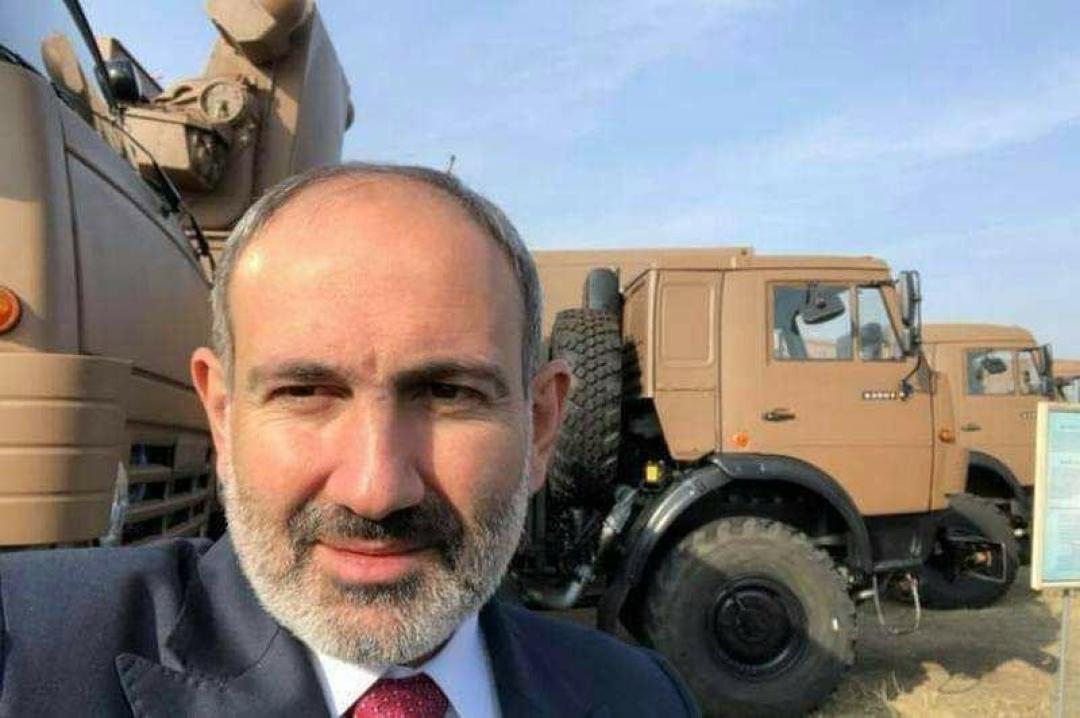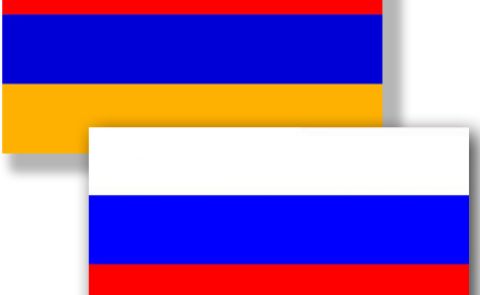
Pashinyan unveils more details on the 9 November agreement

On 29 November, Armenia’s Prime Minister Nikol Pashinyan once again spoke on the reasons why he had to sign the trilateral statement on 9 November with the leaders of Russia Vladimir Putin and Azerbaijan Ilham Aliyev to stop the war in Nagorno-Karabakh and the possible consequences of that step.
“On 19 October 2020, the (de facto) President of Nagorno-Karabakh Arayik Harutunyan called me and said that the war should be stopped. He also said that [this was not only his opinion but that of]… the former (de facto) presidents of Karabakh Arkady Ghukasyan, Bako Sahakyan, as well as Armenia’s former Presidents Robert Kocharyan, Serzh Sargsyan and Levon Ter-Petrosyan. I called Russian President Vladimir Putin and he said that we should try to do this according to the logic of the Russian proposals. That is, the transfer of the status issue, the surrender of areas, the deployment of Russian peacekeepers. I could not make any public statement, because if Azerbaijan rejected this proposal after my public statement, it would be the collapse of our entire system of resistance. I called the Russian president again and said that I agree,” he said.
Pashinyan went on saying that Putin noted that the Armenian side must commit itself to the return of Azerbaijanis to Shusha. “Thus, the truce became impossible, because I said that even if I agree on the issue of Hadrut, I cannot imagine the possibility of surrendering Shusha. The issue is that in this case the population of Shusha would be populated by 90 percent or more of Azerbaijanis, who were supposed to control the road to Stepanakert. I am sure that if I agreed to the option of surrendering Shusha, Azerbaijan would put forward a new condition on passing the Karmir Shuka-Shusha road under their control,” he stated.
According to Pashinyan, Armenia's previous leader Serzh Sargsyan had publicly stated earlier that after the 2011 negotiations with Azerbaijan’s President Ilham Aliyev in the Russian city of Kazan, Armenia was ready to hand over all seven Azerbaijani districts surrounding Nagorno-Karabakh's administrative borders that fell under Armenian control in 1994. This was to be in return for an intermediate status for Karabakh and a later referendum on its status, but Aliyev did not agree and put forward new demands. Pashinyan stated that Sargsyan could have demanded that the status of Karabakh be removed from the agenda or that the Lachin corridor would not have a special status. He emphasised that the Azerbaijani demands had no mention of the town of Shusha, because it was also to be resolved by the Madrid Principles adopted by the Armenian side in 2007 as a basis for negotiations: they clearly state that the ratio of the population of Nagorno-Karabakh must correspond to what it was back in 1988 before the conflict. Pashinyan added that regardless of the document presented by the co-chairs of the OSCE Minsk Group at the negotiating table, Azerbaijan insisted on the aforementioned demands, the alternative to which was war.
“I stated that there was no alternative to war when I took office as Prime Minister of Armenia in 2018. And in this situation, let's figure out what was the alternative to what has happened? One could have appealed to the people and say: ‘Either we must hand over the seven districts without a status for Karabakh, or there would be a war.’ People would not have agreed and would decide to fight. A war would have started, and it would appear that Armenia started it. If I said ‘no,’ I would have to surrender the districts, people would say ‘Nikol is traitor’ and the war would start again.”
“If at any stage, including during the latest Turkish-Azerbaijani military exercises, I would have told the Turks to resolve the issue without war, they would have demanded that I provide a specific schedule for the surrender of the regions. If I had done so, the people would have called me traitor again. As of 2018, the Karabakh issue was at an impasse with one way out - the unconditional surrender of the districts without guarantees that Azerbaijan would not put forward new demands. And, in the context of these new demands, a new rise in the likelihood of war,” Pashinyan added.
Pashinyan also spoke about why Armenia’s two former Presidents Robert Kocharyan and Levon Ter-Petrosyan did not go to Moscow to propose a unified Armenian stance during the war (Caucasus Watch reported). “On 20 October 2020, I said that I was not against this idea, I would even provide a state plane – let them leave, meet, return. However, after my consent, the former (de facto) presidents of Karabakh Bako Sahakyan and Arkady Ghukasyan raised another issue: they said that I needed to come to an agreement with Russian President Vladimir Putin so that he would accept Ter-Petrosyan Kocharyan as special envoys. I proposed another option: to quickly organise a protocol visit of Ter-Petrosyan and Kocharyan to Moscow as retired presidents, where they will be guests of the former Russian President Dmitry Medvedev, who is also the Deputy Chairman of the Russian Security Council, and within this framework, try to organise courtesy meetings with the Russian President, Foreign Minister and other high-ranking officials,” he said.
“Ghukasyan and Sahakyan left promising to discuss this option with Ter-Petrosyan and Kocharyan. It turned out that the option I proposed was not very interesting to the latter. Unexpectedly for me Sahakyan announced that Ter-Petrosyan and Kocharyan had an agreement to meet with Sergey Lavrov. It turned out that another problem was… Kocharyan's passport, which was in court. I said, let them file a petition with the court, I will ask that the prosecution does not object to the return of the passport. So, what happened? The court returned Kocharyan's passport, but Ter-Petrosyan and Kocharyan never left for Moscow,” he added.
Pashinyan’s revelations faced negative reactions in the country, most notably from Armenia’s President Armen Sarkissian. While meeting with the Armenian diaspora in Russia, Sarkissian described Pashinyan’s signing of a cease-fire agreement with Azerbaijan as a “great tragedy” and that the current government has to resign following this act. He stressed that new elections should be held within a year in Armenia and at the latest an interim government of national accord should be formed, preferably a technocratic one. Sarkissian was also very critical towards the country’s constitution, saying that there was no balance between the parliament, the government, and the presidency. He also asked his Russian counterpart Vladimir Putin to mediate the return of Armenian prisoners of war (POWs) who are currently held in Azerbaijani custody.
Armenia’s former President Levon Ter-Petrosyan also made critical remarks towards Pashinyan. “President Ter-Petrosyan considers it meaningless to reflect on the mental anguish of the nation-destroying scourge. Let him say whatever nonsense he wants. All the same, he has no way to justify himself. The Armenian people will never forgive him,” said Ter-Petrosyan’s spokesperson Arman Musinyan.
See Also


Armenia and Russia Reaffirm Strategic Ties Amid Speculation of Strained Relations

Sergey Naryshkin Accuses Britain of Destabilizing Georgia

Armenia Records 5.9% GDP Growth in 2024, Missing 7% Goal

Yerevan Balances Strategic Ties with Both US and Russia, Says Foreign Minister

